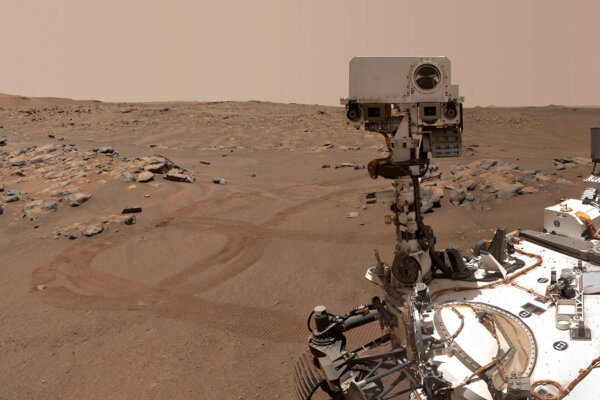
NASA is looking for a more cost-effective and simpler approach to retrieve soil samples collected on Mars and bring them back to Earth due to budget constraints, according to U.S. space agency officials.
A formal request for proposals will be issued to NASA centers, laboratories, and space industry companies to find ways to streamline a program that has faced technical challenges and rising costs.
NASA executives stated that they anticipate receiving alternative plans for review in the coming months.
The focus of the overhaul will be on utilizing innovative yet proven technology to reduce development time, risks, and expenses, rather than pursuing groundbreaking technological advancements.
There are uncertainties regarding how NASA will reconcile using existing technology for spaceflight systems to achieve a task that has never been done before, such as launching a rocket from another planet’s surface.
The decision to revamp the Mars sample return strategy follows an independent review commissioned by NASA last year, which highlighted unrealistic budget and schedule expectations and organizational inefficiencies within the program.
The program has also been affected by significant budget cuts imposed by Congress this year, leading to layoffs at NASA’s Jet Propulsion Laboratory, which is spearheading the Mars mission.
The Perseverance rover, built by JPL, has been collecting samples from Mars since 2021 for future analysis to search for possible signs of ancient life.
The next phase of the mission involves partnering with the European Space Agency to retrieve the samples from Mars and return them to Earth, with initial plans targeting a launch in the late 2020s.
However, the independent review revealed that costs for the Mars sample return mission could exceed $11 billion, and the samples might not reach Earth until after 2040.
NASA Chief Bill Nelson stated that the high costs and extended timeline are not feasible and could impact other major science objectives, such as missions to Saturn’s moon Titan and Venus.
NASA officials are considering the possibility of leaving behind some of the samples collected by Perseverance to reduce costs and complexity.
Nelson expressed confidence in the capabilities of NASA, JPL, and their partners to find a solution to the challenges facing the Mars sample return mission.
By Steve Gorman






